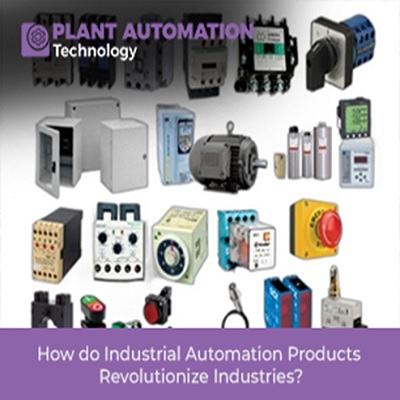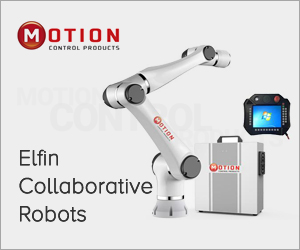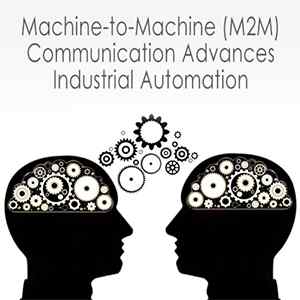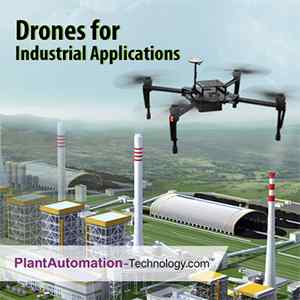How do Industrial Automation Products Revolutionize Industries?

Introduction
In today's fast-paced and competitive business landscape, industries are constantly seeking ways to enhance efficiency, productivity, and profitability. One transformative solution that has gained significant traction is the implementation of industrial automation products. These cutting-edge technologies are revolutionizing industries by streamlining operations, optimizing processes, and unlocking new levels of productivity. In this article, we will delve into the world of industrial automation products and explore how they are reshaping various sectors.
Industrial Automation: A Game-Changer
Industrial automation refers to the use of advanced technologies and control systems to automate industrial processes, reducing the need for human intervention and maximizing operational efficiency. At the core of this revolution are industrial automation products, which encompass a wide range of solutions such as robotics, smart sensors, programmable logic controllers (PLCs), and data analytics tools.
Efficiency and Productivity Enhancement
Industrial automation products offer a major advantage in boosting efficiency and productivity. By automating monotonous tasks, these technologies liberate human resources to concentrate on more strategic and value-added activities. For example, robots powered by artificial intelligence and machine learning can handle repetitive assembly line tasks, leading to accelerated production cycles, decreased errors, and improved throughput.
Streamlining Operations
Industrial automation products play a crucial role in streamlining operations across industries. By integrating various components of the production process and creating a seamless flow of information, automation ensures smoother and more efficient workflows. Smart sensors and IoT (Internet of Things) devices enable real-time monitoring of critical parameters, facilitating proactive maintenance and minimizing downtime. This level of connectivity and data-driven decision-making leads to optimized supply chains, reduced waste, and improved overall operational performance.
Innovation and Technological Advancements
Industrial automation products are propelling innovation and technological advancements across various industries. By leveraging emerging technologies like artificial intelligence, machine learning, and robotics, these products empower businesses to venture into new territories. An example of this is the rise of collaborative robots, also known as cobots, which are transforming the manufacturing sector. Cobots operate alongside humans safely and collaboratively, tackling intricate tasks that were once considered too complex or risky for human workers. This brings about improved precision and flexibility to manufacturing processes.
Cost Savings and ROI
While the implementation of industrial automation products may necessitate upfront investments, the long-term advantages outweigh the initial costs. These technologies deliver substantial cost savings by reducing labor expenses, minimizing material waste, and optimizing energy consumption. Furthermore, automation enhances quality control, leading to fewer defects and customer returns. The cumulative impact of these cost-saving measures culminates in a greater return on investment (ROI) for businesses, rendering industrial automation products highly appealing across industries of all scales.
Digital Transformation and Data Analytics
The era of digital transformation is upon us, and industrial automation products are at the forefront of this revolution. By capturing and analyzing vast amounts of data generated by automated processes, businesses gain actionable insights that drive informed decision-making. Data analytics tools help identify bottlenecks, uncover operational inefficiencies, and fine-tune production processes. This data-driven approach enables continuous improvement, resulting in higher productivity, better resource allocation, and superior customer satisfaction.
Sustainability and Environmental Impact
Industrial automation products also contribute to sustainability efforts by minimizing the environmental impact of industries. Through optimized energy consumption, reduced waste generation, and improved resource utilization, automation helps businesses operate in a more eco-friendly manner. By implementing intelligent control systems and energy-efficient technologies, industries can significantly lower their carbon footprint and contribute to a greener future.
Scalability and Competitive Advantage
In an increasingly competitive business landscape, scalability and agility are critical factors for success. Industrial automation products provide businesses with the flexibility to scale operations up or down as per market demands. By automating key processes, companies can quickly adapt to changing customer preferences, market trends, and production volumes. This scalability empowers industries to stay ahead of the competition and seize new opportunities promptly, giving them a significant competitive advantage in the market.
Maximizing Workforce Potential
Industrial automation products not only replace repetitive tasks but also maximize the potential of the workforce. By taking over mundane and physically demanding jobs, automation allows human employees to focus on more complex and creative tasks that require critical thinking and problem-solving skills. This leads to a more engaged and empowered workforce, fostering a culture of innovation and continuous improvement within the organization. With automation handling routine operations, employees can dedicate their expertise to areas that require human judgment, ultimately driving overall productivity and job satisfaction.
Improved Safety and Risk Mitigation
Industrial automation products have made significant advancements in ensuring workplace safety and risk mitigation. By delegating hazardous tasks to robotic systems, businesses can protect their employees from dangerous environments and reduce the likelihood of accidents or injuries. Automation can also incorporate safety features such as sensors and emergency stop mechanisms to immediately respond to any anomalies or potential hazards. This proactive approach to safety not only safeguards the workforce but also minimizes the financial and reputational risks associated with workplace incidents.
Enhanced Customer Satisfaction
The benefits of industrial automation products extend beyond internal operations to customer satisfaction. Automation enables businesses to produce goods or deliver services more efficiently, reliably, and with consistent quality. Faster production cycles, reduced lead times, and improved accuracy contribute to meeting customer demands promptly. Additionally, automation allows for customization and personalization at scale, ensuring that products are tailored to individual customer preferences. With improved efficiency and quality, businesses can enhance customer satisfaction, build loyalty, and gain a competitive edge in the market.
Cross-Industry Applications
While industrial automation products have been predominantly associated with manufacturing, their applications extend beyond this sector. Industries such as healthcare, logistics, agriculture, and retail are increasingly adopting automation technologies to optimize their operations. In healthcare, automation aids in tasks like medication dispensing, laboratory testing, and surgical procedures, leading to improved patient outcomes and reduced medical errors. In logistics, automated warehouses and robotic systems streamline inventory management and order fulfillment processes, enhancing efficiency and reducing delivery times. Automation in agriculture enables precision farming techniques, optimizing resource usage and crop yield. Retail stores utilize automation for inventory tracking, self-checkout systems, and personalized shopping experiences. These cross-industry applications demonstrate the versatility and adaptability of industrial automation products across various sectors.
Integration and Collaboration
Industrial automation products are designed to seamlessly integrate with existing infrastructure and systems. They can be integrated with enterprise resource planning (ERP) software, manufacturing execution systems (MES), and other business management tools, enabling real-time data exchange and synchronization. This integration facilitates a holistic view of operations, enhances data accuracy, and enables better decision-making. Moreover, automation systems can collaborate, creating a synchronized network of machines and processes. This collaboration allows for coordinated workflows, optimized resource allocation, and improved overall system performance.
Future Trends and Outlook
The evolution of industrial automation products shows no signs of slowing down. Advancements in technologies like artificial intelligence, machine learning, and the Internet of Things continue to propel automation to new heights. The integration of these technologies enables intelligent automation systems that can learn, adapt, and make autonomous decisions. Predictive maintenance algorithms anticipate machinery failures before they occur, minimizing downtime and maximizing productivity. Robotics and cobots are becoming more agile, versatile, and capable of working alongside humans with greater precision and safety. Additionally, the emergence of edge computing and cloud-based platforms facilitates the processing and analysis of massive amounts of data generated by automation systems.
As the fourth industrial revolution unfolds, industrial automation products will play a pivotal role in shaping the future of industries. The benefits of efficiency, productivity, cost savings, sustainability, and competitive advantage will continue to drive their adoption across sectors. However, businesses need to adapt and embrace automation with a strategic mindset. This includes assessing their specific needs, conducting thorough feasibility studies, and implementing automation solutions that align with their goals and objectives. With careful planning and integration, industrial automation products will undoubtedly revolutionize industries and pave the way for a more efficient, innovative, and prosperous future.
Conclusion
Industrial automation products are revolutionizing industries by transforming the way businesses operate, produce, and compete. With their ability to enhance efficiency, streamline operations, and drive innovation, these technologies have become indispensable for industries across sectors. From manufacturing and logistics to healthcare and agriculture, industrial automation products are reshaping the business landscape, leading to improved productivity, cost savings, and sustainability. As we continue to embrace the digital era, it is evident that industrial automation is not just a trend but a fundamental shift that will shape the future of industries worldwide.







